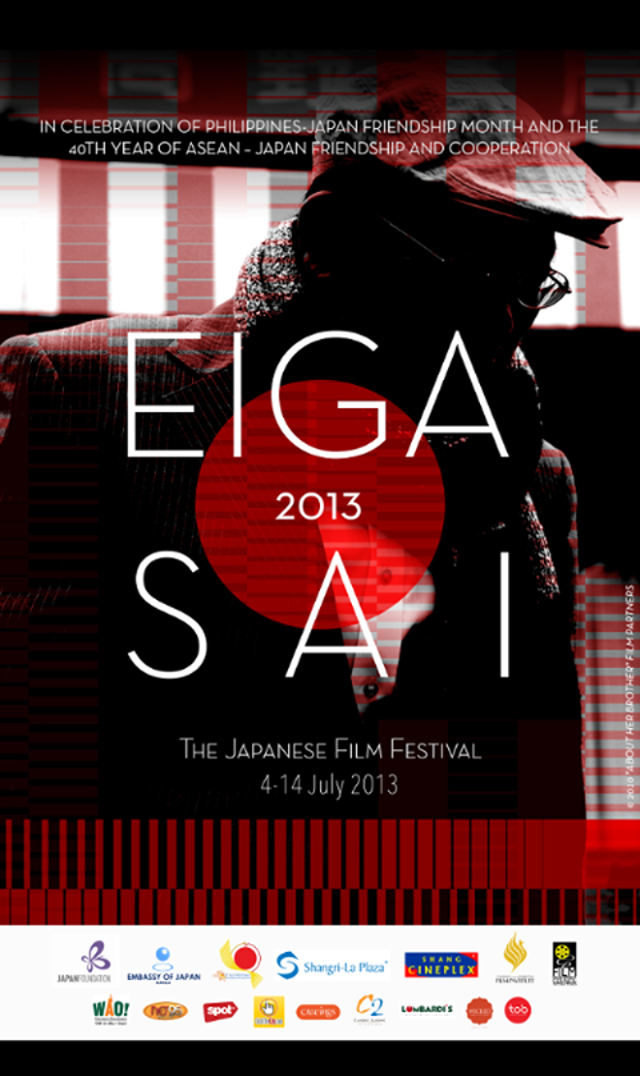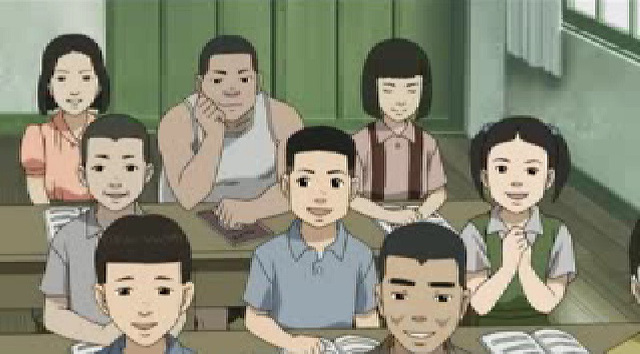SUMMARY
This is AI generated summarization, which may have errors. For context, always refer to the full article.

MANILA, Philippines – Japanese nationhood and identity as defined by ordinary lives are the running themes of this year’s Eiga Sai film festival.
Eiga Sai, which translates to “movie festival” in Nihongo, is a joint undertaking of the embassy of Japan, Japan Foundation Manila, and the Film Development Council of the Philippines.
Free and open to the public, it will be held on July 4 to 14 at Cinema 2 of the Shangri-la Plaza Cineplex. Shorty after, it will travel to the FDCP Cinematheque and Abreeza in Davao on July 19 to 28, to Ayala Center in Cebu on August 7 to 11, and will end its journey at the University of the Philippines, Diliman on August 19 to 25.
Here are the featured films:
“About her Brother”
Yamada Yoji gives tribute to legendary director Ichikawa Kon’s film of the same title, through the story of a hardworking girl and her long-lost brother.
“Always-Sunset on Third Street” trilogy
The trilogy depicts post-war Tokyo by tracing the life of sweets shop owner, Chakagawa, turned instant father to a young boy after he drunkenly agreed to do so. The first film sees the boy’s father appearing to retrieve his son, forcing Chakagawa to let him go.
“Always-Sunset on Third Street 2” continues his story, as he is determined to get the young boy back. He works on proving his capacity to take care of the boy by writing, in the hopes of winning the Japanese Literary Prize.
The trilogy ends with Chakagawa becoming a successful novelist, but still with hardship to face when his father grows ill.
“Confessions”
Nakashima Tetsuya’s “Confessions” is a gripping film about a high school teacher who believes one of her students murdered her daughter. It was Japan’s entry for the Foreign Language Film Category in the 83rd Academy Awards.
“Rinco’s Restaurant”
While going through a heartbreak, Rinco moves in with her mother and puts up a restaurant, which soon gathers a following because of its meals lovingly made to bring happiness to the customers.
“Dear Doctor”
Award-winning Nishikawa Miwa’s “Dear Doctor” tells of a well-loved village doctor, who mysteriously disappears after he diagnoses a widow as having a terminal disease.
“Kamui”
Inspired by a ninja comic by Shirato Sampei, the film traces the action-packed adventure of Kamui, a ninja who tries to escape the ninja world.
“Castle Under Fiery Skies”
The historical film depicts civil unrest in 16th century Feudal Japan, during the siege of Nagashino Castle. Azuchi Castle is built afterwards, as a grand and lavish gift for the future and reminder of the past.
“Parade”
In the film, a group of 5 young men and women who live together are disturbed by repeated incidents of violent assaults, portraying restlessness and apathy among the youth. “Parade” is a dark coming-of-age film inspired by Yoshida Shuichi’s novel, which won the Yamamoto Shugoro Prize.
Animated films:
“Mai Mai Miracle”
Based on Akutagawa Prize winner Takagi Nobuko’s autobiographical novel, “Mai Mai Miracle” is a nostalgic tale of youth, friendship, and bridging the gap between the past and present.
“Japan, Our Homeland”
The film depicts the life of 6th graders in a community struggling to move on from the perils of the Second World War.
Watch the trailer here.

– Rappler.com
For a detailed list of screening schedules, click here.
Add a comment
How does this make you feel?
There are no comments yet. Add your comment to start the conversation.